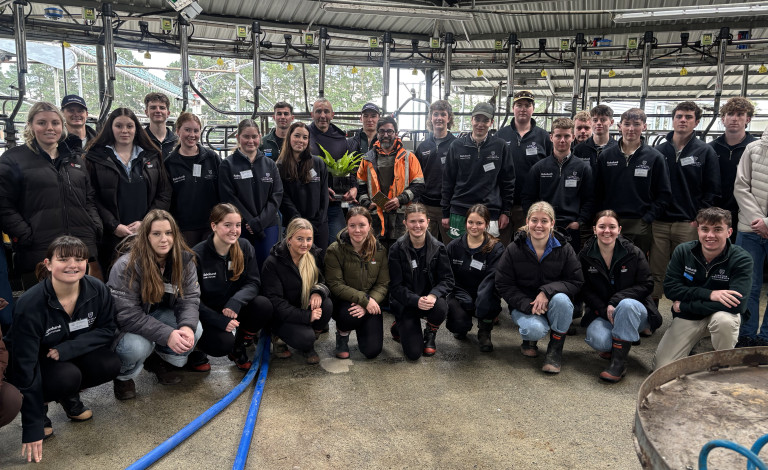Terroir expression in New Zealand Pinot Noir
26 May 2025 | News
The unique characteristics of a vineyard environment offer winemakers an opportunity to express terroir, a fundamental principle of winemaking. In New Zealand, winemakers are increasingly looking for innovative ways to make distinctive wines reflecting terroir.
Since 2012, Greystone Wines has chosen small parcels of Pinot Noir grapes on their vineyard to be fermented among grapevines, utilising wild yeasts for fermentation as an expression of terroir. When Te Whare Wānaka o Aoraki Lincoln University researcher Dr Bin Tian introduced one of their vineyard fermented Pinot Noir wines into one of his undergraduate courses, he was soon impressed by the quality of the wine and wanted to understand how the chemical composition of the wines varied from those spontaneously fermented in a winery.
Though Greystone Wines has been using this fermentation method for some time, it is now growing in popularity with small to medium-sized wine producers keen to create Pinot Noir wine with a style unique to their vineyard.
“The team at Greystone Wines were happy to be involved in this research so they could better understand their winemaking process at a chemical and microbiological level. Our research is providing the wine industry with a deeper understanding of the influence of vintage and fermentation location on the profile of Pinot Noir and terroir so winemakers can optimise their fermentation strategies to climatic conditions to produce distinctive styles of wines,” says Dr Tian.
The team of researchers working with Dr Bin Tian included Lincoln University’s Professor Stephen On, Dr Romy Moukarzel, Dr Junwen Zhang, Dr Pradeep Wimalasiri, Dr Leandro Dias Araujo with Dr Manpreet Dhami (Landcare Research) and Greystone Wines' Dom Maxwell. The research was published in the article Extending the influence of terroir through the spontaneous fermentation of Pinot Noir in the vineyard: A case study of Greystone vineyard fermentation in the Journal of Agricultural and Food Chemistry.
Hand-harvested grapes from a single vineyard were subjected to spontaneous fermentation – the use of wild, local yeasts rather than commercialised types- and fermented outdoors in a vineyard and inside the winery. Along with comparing how indoor and outdoor environments impact fermentation and wine styles, the research examined the influence of two consecutive vintages (2019 and 2020) on the chemical profiles of Greystone Wines’ Pinot Noir.
By analysing the grape’s microbial diversity, chemical composition and volatile profiles, researchers discovered that Pinot Noir wine composition can be significantly shaped by the complex interplay between climatic conditions and fermentation environment.
“To produce a distinctive Pinot Noir, our research data shows that wild yeasts and vineyard fermentation greatly influence wine composition site-specific factors, including native microbial diversity, soil characteristics, local climate conditions such as temperature and humidity, and vineyard management practices, which collectively shape the microbial and chemical profiles of the wine.”
Research found that vineyard fermentation exhibited a higher percentage of non-Saccharomyces yeasts during fermentation, contributing to the wine’s complexity and quality. These could lead to the chemical differences that flow through to the resultant Pinot Noir wines, displaying more fruitiness and perfume than winery-produced Pinot Noir. In contrast, the Pinot Noir grapes fermented at the winery displayed more intense colour and stability.
When the Pinot Noir vintages were compared to understand their influence on wine styles, research found that the vintage year played an important role in producing a unique wine. Vintage-specific climate conditions were key determinants of esters and terpenes profiles in Pinot Noir, positively influencing the aroma and flavour of the wine. This was discovered after finding that the cooler weather in the 2020 vintage delivered more floral and citrus aromas and a lighter style of wine.
For media enquiries, please contact media@lincoln.ac.nz
Image credit: Greystone Wines


